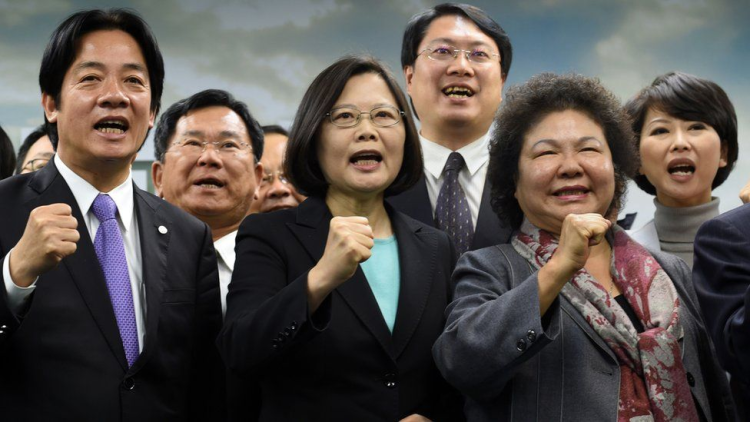
Film screening of ‘And More Miles to Go before I Sleep’

Key information
- Date
- Time
-
6:30 pm to 9:00 pm
- Venue
- Main Building, SOAS University of London, 10 Thornhaugh St, London WC1H 0XG
- Room
- KLT
About this event
To see is to act – what the death of a migrant worker can tell us about humanity?
Nguyen Quoc Phi was nobody before he died, but now he tells his own story as a young migrant from Nghệ An, Vietnam, to Taiwan in this documentary. Phi was an undocumented migrant worker, or a ‘runaway’, in northern Taiwan before he was shot dead by the police on 31 August 2017. What made him ‘run away’ from his factory work? How did he find jobs in various construction sites? Why did he start taking drugs? Was he an imperfect victim?
These are straightforward questions leading to complicated answers. And More Miles to Go before I Sleep brings to the fore the nakedness of discrimination and the challenges to humanity if we choose to be bystanders indifferent to inequality and injustice.
Please join us for the screening of this award-winning documentary and find out how each of us can take action to stop discrimination and inequality.
The content of the film includes violent scenes, and the topics under discussion may be stressful for some viewers.
Trailer
Speaker's biography
Director Tsai Tsung-lung, National Chung Cheng University
Graduated with a law degree in Bachelor from the National Chengchi University and a Master’s degree in Mass Communication from Fu Jen Catholic University in Taiwan, Tsai Tsung-Lung also holds a Master’s Degree in Film Studies from the University of East Anglia in the UK. He had worked as a journalist in print media, a special correspondent for the corporate TV industry, and a documentary producer of Taiwan Public Television Service (PTS). He is currently Associate Professor at the Department of Communications of the National Chung Cheng University and works as an independent documentary producer and director. He takes a humanist approach to his works concerning human rights, environmental crisis, and culture diversities.
In 2006, He and several documentary directors organised the first labour union for documentary workers in Taiwan. He was the chief editor of the book “The Love and Hatred of Documentaries” which was published in 2009. It features collected interviews of 12 middle-aged documentary directors in Taiwan. Tsai is endeavoring to promote the visibility and understanding of documentaries and, as a lecturer, has dedicated to training filmmaking amongst students and amateurs. Some of his recent works were collaborated with his Vietnamese spouse, Ngyuen Kim Hong, concentrating on migrant spouses and workers in Taiwan, such as See You, Lovable Strangers that recorded the hardships of Vietnamese farmworkers. He also participated in producing several films regarding current social issues, including judicial reforms, the Sunflower movement, and anti-air-pollution protests.
He is known for his film Killing in Formosa, which won the Best Documentary for the 2001 Golden Harvest Awards. Behind the Miracle won the Best Documentary on Current Affairs of the Excellent Journalism Awards in 2002. My Imported Wife was invited to be screend in the Best of International Public Television (INPUT) Screening Conference in 2004 and was archived in the Museum of Television and Radio in New York. Oil Disease: Surviving Evil reveals the never-ending struggles of surviving victims of the 1979 PCBs Poisoning Incident. It won first prize of the 2008 South Taiwan Film Festival and was nominated by the Taipei Film Festival, Kaohsiung Film Festival, and Earth Vision-Tokyo Global Environmental Film Festival. Sunflower Occupation, the latest film produced by Tsai, was selected in the New Asian Currents item in the 2015 Yamagata International Documentary Film Festival.
Dr Isabelle Cockel, Senior Lecturer in East Asian and International Development Studies, University of Portsmouth
Dr Cockel joined the University of Portsmouth in 2012 after acquiring her PhD from the School of Oriental and African Studies (SOAS) of the University of London. Her research focused on marriage migration in East Asia with reference to the migration of Chinese and Southeast Asian women to Taiwan. On this topic, her publications focused on sovereignty, nation-building, identity, multiculturalism, citizenship, motherhood and political participation.
From marriage migration, she moved onto labour migration in East Asia particularly the corridors between Vietnam and Indonesia and Taiwan. On this topic, her publications focused on migrant workers’ labour rights, grassroots activism and irregular farm workers. Taking her interest in gender into the study of the Cold War, she also conducted research on women propaganda broadcasters. She argued that transmitting their voices via radio and loudspeakers constructed an ideological soundscape transgressing state borders.
She is currently the Secretary-General of the European Association of Taiwan Studies and Research Associate of the SOAS Centre of Taiwan Studies.



